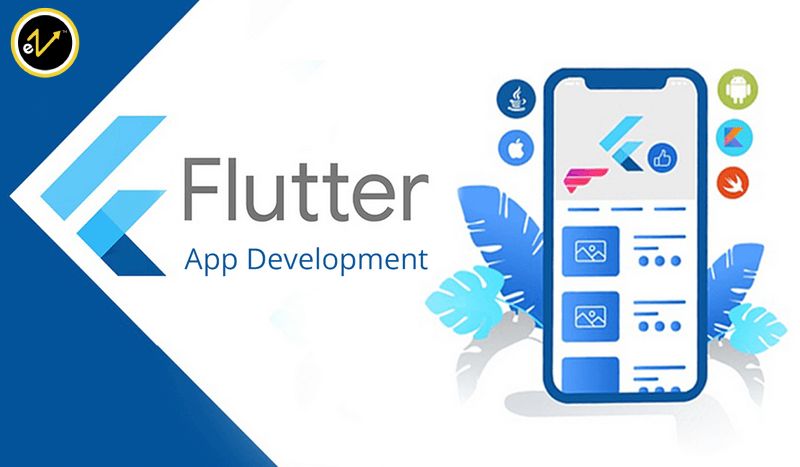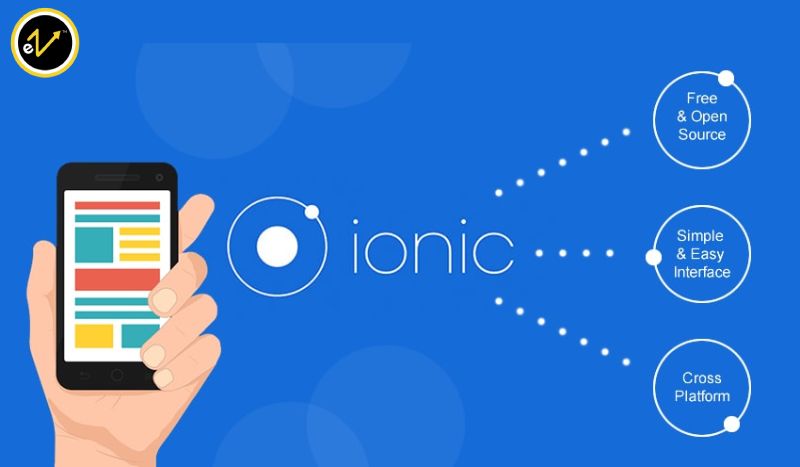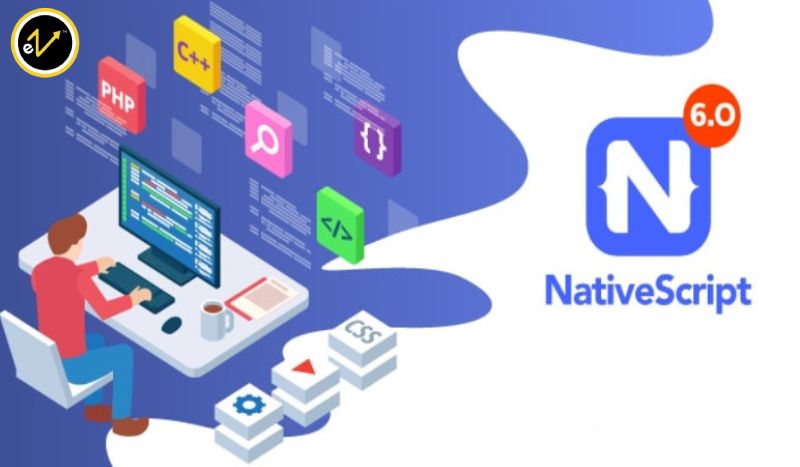Top 10 Best Cross Platform App Development Frameworks in 2024
Cross Platform App Development Frameworks help in building a mobile app that can work across platforms. Its current popularity is owed to its multiple merits.

However, because of this, multiple cross-platform app development frameworks and tools have made their way into the market. As a developer, one may find it overwhelming to figure out the right stack of tools to develop a cross-platform app.
To ease this confusion, we’ve gathered a list of the top 10 cross-platform app development frameworks that you can use to develop a robust, responsive cross-platform app. These are:
- Flutter
- React Native
- Ionic
- js
- NativeScript
- Xamarin
- PhoneGap
- Appcelerator Titanium
- Corona SDK
- Sencha Touch
All of the frameworks are explained later in the blog.
What Is Cross Platform App Development?

A Cross Platform app development involves the building of mobile applications that can operate on multiple mobile operating systems. Earlier, cross-platform apps were difficult to build as they were time-consuming and expensive.
Developers often found it convenient to develop native applications for each operating system(OS) as it wasn’t possible to repurpose the code from one OS to another. But with the modern technology, cross-platform app development has become convenient.
Cross-platform app development newer approach has made it possible to develop:
- Hybrid mobile app development
- Rapid mobile app development
- Windows universal apps
- Progressive web apps
What Exactly Is Meant By Cross Platform App Development Framework?

With a cross-platform app development framework, separate coding is not required for each platform. Once coded on this framework should work for all mobile platforms.
Being one of the most dominant methods in mobile app development today, cross-platform app frameworks optimize the code and fasten the process.
List Of Top 10 Cross Development App Framework
With several cross-platform app development frameworks in the market, these are our picks for the top 10 cross-app frameworks:
Top 10 Cross Platform Framework for App Development in 2024.
- Flutter
- React Native
- Ionic
- js
- NativeScript
- Xamarin
- PhoneGap
- Appcelerator Titanium
- Corona SDK
- Sencha Touch
1. Flutter

Google introduced this framework in 2017 and is a software development kit that fastens the android and iOS development process. With flutter, apps can be developed that run effectively on multiple operating systems. Some of the notable features of Flutter are:
- Flutter can work on the newest of interfaces as it utilizes a portable GPU which gives UI power.
- There’s also no need to update UI content manually as with a reactive framework, Flutter performs this task conveniently. Just updating variables shows the UI changes.
- Flutter is the ideal choice for developing a Minimum viable product(MVP) because it’s cost-effective.
- It’s easy to make changes and adjust the code.
- Flutter possesses an inbuilt graphic engine so separate interfaces for Android and iOS won’t be needed.
- Two of the most popular apps developed on Flutter are Alibaba and Google Ads.
2. React Native

A framework developed on JavaScript, React Native help mobile applications give that “native feel” making it work on iOS and Android. Businesses and developers alike trust this framework for their mobile applications.
React Native combines the advantages of JavaScript and React.js. It’s also possible to write modules in Objective-C, Swift, and Java languages.
Developers can perform heavy operations such as image editing, video processing, and more by using native modules and libraries in the React Native cross-platform apps. The other elements of React Native are:
- It is an open-source cross-platform app framework which means that it’s backed by a large community. Fixing bugs, improvising, and introducing features are easy.
- Once coded is enough to run on multiple platforms, thus, making it cost-effective and time efficient.
- React Native is also compatible with third-party plugins such as Google Maps.
- The framework actively focuses on a highly responsive interface. A smooth interface is certain for applications developed with React Native.
3. Ionic

Based on Angular JS, this framework allows developers to use a combination of top programming languages such as HTML5, CSS, JavaScript, and Cordova Wrapper.
A creative, user-friendly interface is easy to build with Ionic, thus also making it a top choice for PWA(Progressive Web App) development as well. Some of the traits of Ionic are pointed out below:
- An open-source, front-end framework, it allows for code alterations, as per the need of a developer.
- Ionic is designed specifically for mobile solutions as it’s based on a SAAS UI framework. Multiple UI components are available for building robust mobile applications.
- This framework utilizes Cordova plugins that allow access to in-built device features such as Audio Recorder, GPS, and Camera.
- Ionic makes it easy to offer HTML syntax extensions and core functionalities to include useful, and attractive components in the app.
- Ionic gives every app a native look aiding it to work perfectly on multiple platforms.
4. NativeScript

This is an impressive, free framework based on JavasScript. NativeScript is seen as an ideal choice for WORA or write once, run anywhere functionality.
All native APIs are available in NativeScript allowing the developers to reuse current plugins directly from NPM in the projects. NativeScript attributes are listed below:
- Angular and TypeScript are used for programming purposes.
- It calls for local strategies from libraries and support segments such as Android Arsenal and Cocoapods.
- With NativeScript, developers can access native iOS, and Android APIs making the knowledge of native development languages redundant.
- In comparison to React Native, NativeScript comes with full web resources that are filled with plugins. This reduces the requirement for third-party solutions.
- Without WebViews, NativeScript offers a native, beautiful, and accessible UI. Once written code, NativeScript adapts the code to run anywhere. It’s also possible to customize the UI to particular screens and devices.
5. Node.js

It’s a JavaScript runtime framework developed on the Chrome V8 JavaScript engine. An open-source environment, this framework supports the development of server-side and scalable networking solutions. Not just responsive apps, but his framework can also handle several concurrent connections together.
A library of several JavaScript modules also comes with Node.js making the development process straightforward. Here are some of the qualities of Node.js:
- Servers based on Node.js don’t wait for data from APIs as the Node.js APIs are asynchronous. It moves on to another API after calling it. With the help of notifications, Node.js allows the server to achieve a response from the former API call.
- The code execution process is speedy because its library is built on Chrome’s V8 engine.
- Cross-platform apps developed on this framework do not buffer but rather output the data in pieces.
- It utilizes a single-threaded model with event looping functionality to deliver fast and functional apps. The servers are scalable as they reply in a non-blocking way because of this mechanism.
- Apps developed on this framework reduce reaction time for slow requests. Moreover, developers can deliver information queries at the very same time.
6. Xamarin

Xamarin is a streamlined framework used for developing apps for Windows, iOS, and Android with the help of C# and .Net. Effective at building native-like applications, these are some of the traits of Xamarin:
- Xamarin reduces hardware compatibility problems with the help of plugins and particular APIs. Linking with native libraries is also possible allowing customization and native operations.
- The framework also supports the induction of Objective-C, Java, and C++ libraries. Thus, developers can reuse third-party codes written in Java, C++, and Objective-C.
- It has a robust compile-time checking. As a direct result of this, coders get fewer run-time errors which aid them in building well-functioning apps.
7. PhoneGap

PhoneGap or Cordova uses CSS, JavaScript, and HTML 5. A cloud solution is also available through which developers can share their app to get feedback from other developers. PhoneGap supports in-built device features and leverages existing app technologies to deliver the best app.
Another distinct feature is that Cordova uses an architecture that’s plugin-able. This means that access to native device APIs can be implemented in a modular way.
8. Appcelerator Titanium

Appcelerator Titanium streamlines the app development process with the availability of native JavaScript code components. These are the essential features of Appcelerator:
- It offers multiple tools for rapid application development. Thus, a prototype can be created in less time and effort to analyze user interaction with UI.
- ArrowDB is a schema-less data store that helps developers deploy data models with no additional effort for setup.
- It’s also possible to integrate existing continuous delivery systems including SCM solutions.
- This framework also has pre-built connectors for Salesforce, MS Azure, MS SQL, and many more.
9. Corona SDK

Programmers can develop 2D mobile applications for all the leading platforms such as Windows, with Corona SDK. Its backend relies on Lua which is a light and multi-paradigm programming language making the mobile and game app development process faster.
With Lua, any application can expect extensibility, portability, speed, scalability, and ease of usage. Most importantly, it supports real-time testing while working both on Mac OS X and Windows. This free framework has all the following traits:
- It consists of over 1000 APIs that allow developers to manipulate animations, audio, music texture management, native elements, and many more page elements.
- Almost 200 plugins are supported and this includes analytics, media, hardware, etc.
- With Lua, the framework becomes powerful and quick.
- Code changes are almost instantly recognized and a real-time preview of the app’s performance is also available.
10. Sencha Touch

Sencha Touch helps in the development of web-based cross-platform apps that are built using hardware acceleration techniques. Developers can build well-tested, secure apps with integrated UI components and libraries.
Even large business apps can be developed with this effective framework. Some of the most impressive features of the framework are:
- Native looking themes are easily available for popular platforms such as Android, iOS, Windows, etc.
- A multi-platform backend data package for working with data sources is also available.
- Sencha Touch also supports Cordova integration for native API access alongside packaging.
- It comes with customizable and in-built 50+ UI widgets. A collection of UI elements such as lists, toolbars, and menus are also loaded.
Benefits of Using Cross Development App Framework

Some of the benefits of using cross-development app frameworks are:
Top 5 Benefits Of Cross Platform Mobile App Development.
- Maximum Reach Of An App
- Decreased Development Cost
- Swift Development Process
- Recycled Code
- Smooth Integration With Cloud
1. Maximum Reach Of An App
With cross-platform development, an app can be successfully released on multiple mobile platforms, including the web. Therefore, with cross development app framework, a single application can be developed and targeted for popular mobile operating systems such as Android, iOS, etc.
2. Decreased Development Cost
A single application can run on multiple mobile operating systems with the help of such frameworks. This reduces the cost of developing an app for all platforms exponentially.
Agile development processes and reusable codes through such tools and frameworks reduce the development cost. Thus, a cross-platform app development framework is the best thing a developer can use for building a cross-platform app.
3. Swift Development Process
It’s not just the cost that’s beneficial but the complete process also gets completed in less time. The development efforts can be reduced up to 50 to 80 percent. A feature-rich business application gets ready in less time. Thus, it’s convenient for developers to chase deadlines with a cross-platform app framework.
Most importantly, the process of development becomes smooth as the same code runs on all platforms. It’s convenient to send code or make changes to it with the help of a cross-platform app development framework.
It’s possible to send updates to connected devices and platforms, thus, making the complete process even. Even bugs can be fixed once for all systems, thus, ensuring saving of time and money.
4. Recycled Code
The code can be used over and over in this type of development environment. A single code can be reused instead of writing new code for each platform. As a result, both time and resources are saved as the need for writing different code for various platforms is removed.
5. Smooth Integration With Cloud
When a mobile application is developed in a cross-platform environment, they are proven to be compatible. To better the app’s scalability and functionality, single source code is developed with different plugins and extensions.
Multiple plugins can be incorporated with cloud settings making the integration with cloud a hassle-free task.
Conclusion
Cross Platform App Development Frameworks fasten and ease the process of developing mobile applications. Thus, a single time coded app can work on multiple operating systems with a cross platform framework.
With so many frameworks in the market, a developer must know and be aware of what technology stack they wish to choose. Each has its advantages and using the right stack can truly advance the cross-platform app development process.
Frequently Asked Questions (FAQs)
Q1. How can I choose the best cross-platform app framework?
Ans: Check for these factors while choosing the best framework:
- Platform support
- Project goals
- Security risks
- Speed
- Cost of development
- Efficiency and post-launch updates
Analyzing these factors will help you determine the ideal cross-platform app framework.
Q2. Is there any single best cross-platform app framework?
Ans: Not really. It all depends on the project that you’re developing. Based on the goals and requirements, a technical stack should be decided, including a cross-platform app framework.
Q3. What is the most used or successful cross-platform framework?
Ans: It’s safe to say that React Native is the most used cross-platform app framework today. Due to its ability to provide a native-like feel, ease of usage, and various other benefits, app developers prefer to use it regularly.
Q4. What Are Cross Platform App Development Or Hybrid App Development?
Ans: Hybrid app development is a blend of native and web app solutions. Code is written in web languages such as HTML, CSS, and JavaScript and then the code is embedded into a native app with the help of Apache Cordova, or any other plugin. Thus, an app runs on a native-like environment.
Cross-platform app development follows the principle of write once, run anywhere. With once written code, programmers can reuse that code for different operating systems such as Android, iOS, and Windows.
Code shareability is a similarity between the two.
Q5. Is it necessary to use a framework to develop a cross-platform app?
Ans: Yes, a cross-platform framework is essential to develop a cross-platform app. To eliminate the need to develop separate codebases for different operating systems, fasten and smoothen the development process, a framework is necessary. Thus, choosing the framework is an essential task without which effective cross-platform app development is unlikely.
